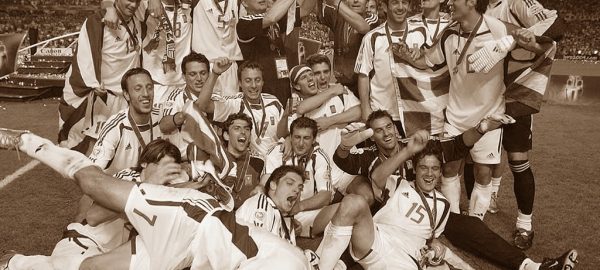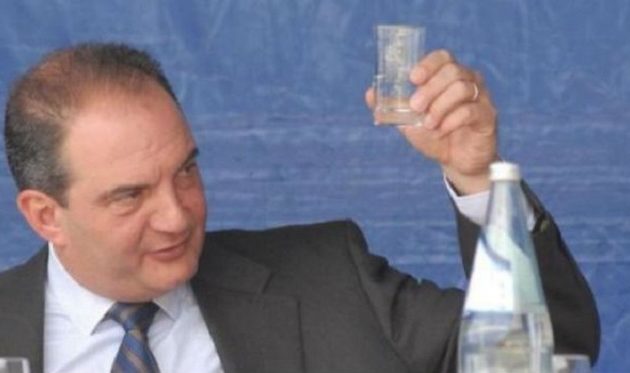Greek television and radio commentators went ballistic when Haristeas scored what was to be Greece’s winning goal against hosts Portugal in the Euro 2004 final. And people all over Greece took to the streets just minutes after Theo Zagorakis had lifted that all important piece of silverware at the Da Luz stadium in Lisbon.
Greek football fans had never lived such moments of joy before. When Panathinaikos reached the Champions Cup final back in 1971, at a time when football was still an amateur sport in Greece, scenes on Athens streets were similar – but Johann Cruyff’s mighty Ajax proved too strong an opponent on the night. More than thirty years later, the country’s national side completed a feat, for which they had been wild outsiders before the beginning of the tournament.
It seems the success of Otto Rehhagel’s men took by surprise not only football experts around the world, but the whole nation too. No-one believed the Greeks could be European champions before it all began, and everyone in Greece seems to have difficulties believing it now that it’s happened. Furthermore, victory has been the cause of a wave of patriotic fervour, that has gradually swept the country since Yorgos Karagounis scored that first goal in Euro 2004’s opening match in Oporto.
“Modern Greece’s eleven Gods”
When the team returned to Athens, it took their coach several hours for what is normally a forty-minute drive, from the airport to the Panathenean Stadium, the renovated ancient venue which hosted the first modern Olympics in 1896.
There, an official ceremony was prepared to welcome the nation’s modern heroes or, as the slogan of the team’s sponsors went, “modern Greece’s eleven Gods,” as opposed to the twelve Gods of ancient Greek mythology. Hundreds of thousands of people packed the streets of the coach’s route and the stadium to celebrate the country’s greatest sporting achievement ever.

Stefanopoulos: Whoever wins is a winner
As it turned out, the ceremony did not do justice to the occasion. Most Greek newspapers charged that the speeches of some officials, especially the archbishop’s, overran in time and overshadowed the presence of the people who were supposed to be honoured, the team themselves. On the next day, though, the Greek president Costis Stephanopoulos received the European champions in the presidential palace, and had a few words for those who accused the Greek side of having played defensive football.
“I would like to note the bitter comments made by some foreign newspapers and some famous people like Mr Platini and Mr Pauletta. They’ve asked: ‘Is it not a shame that a defensive team should win the European championship?’ Well, we can answer to Mr Pauletta and those who accuse the Greek team that whoever wins is a winner and whoever loses is the loser,” said Greek President Costis Stephanopoulos.
As things are, Greek fans could not care less about what other people think of their side’s unexpected victory. To them, the Lisbon miracle is a message that Greeks can succeed given the opportunity – to some of them, it’s even proof that Greeks are a very special nation. To Greek footballers, though it seems to have opened up new opportunities abroad, as many of them are already in talks with foreign clubs and are being offered lucrative contract that will help fade out the memories of the financially struggling Greek clubs. Meanwhile, everyone in Greece is savouring the sweet taste of unprecedented victory…



![Greece election: End of the road for Alexis Tsipras's SYRIZA? [vid] Greece election: End of the road for Alexis Tsipras's SYRIZA? [vid]](http://serpico.gr/wp-content/uploads/2019/06/new_democracy-elections-july_2010.jpg)
![Macedonia: What's in a name? [vid] Macedonia: What's in a name? [vid]](http://serpico.gr/wp-content/uploads/2018/06/aljazeera-skopje.png)